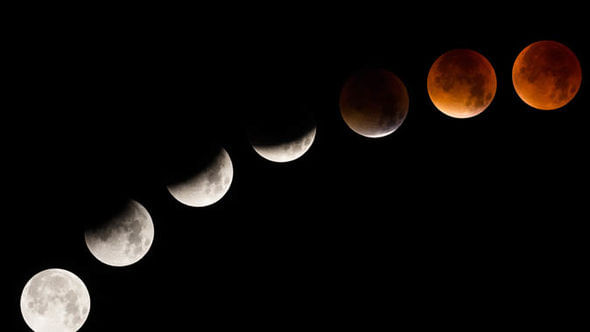Super Blue Blood Moon - Any Impact On Health?
Full lunar eclipse on Wednesday that is 31 January, 2018 will begin at 4:21 pm, but will only be visible at 5:18 pm as per the IST. What is so so special about this super blue blood moon is that it will also be a total lunar eclipse. In India, super blue blood moon will be visible from 5:18 PM and 6:21 PM IST and parts of West Coast & Rajasthan will be able to see it from 6:21 PM IST to 7:37 PM IST on 31 January and the partial eclipse will end at 8:41 pm.
A supermoon happens when the full moon coincides with the moon’s closest orbit point to earth and blood moon is when the red part of the sunlight gets least refracted, giving moon the tinge of orangish red. The average distance from the moon's center to earth is about 382,900 kilometers. At the nearest point of orbit, the moon is 60, 000 KM closer as compared to the average distance, this point is also known as 'perigee'. According to NASA, during this time the moon appears 30% brighter and 14% larger.
According to a study named, 'the lunar cycle: effects on human and animal behavior and physiology', conducted by the US National Library of Medicine and National Institute of Health in 2006-07, following inferences were drawn:
-
It can possibly disturb the sleep pattern, which can cause a feeling of lethargy and stress the following day.
-
It can possibly cause hormonal changes both in humans and animals.



+1.svg)
